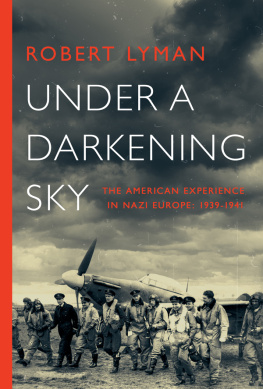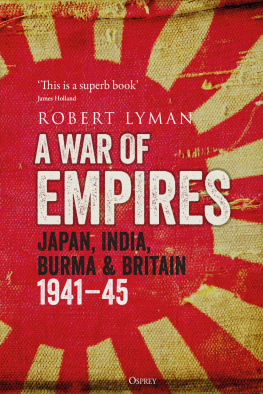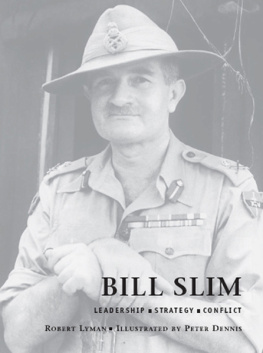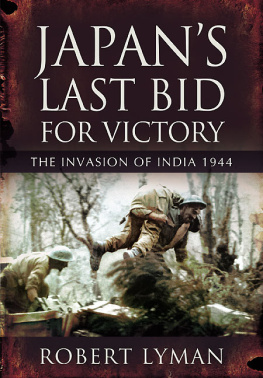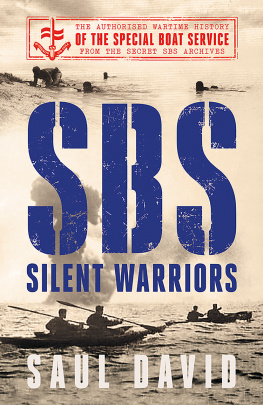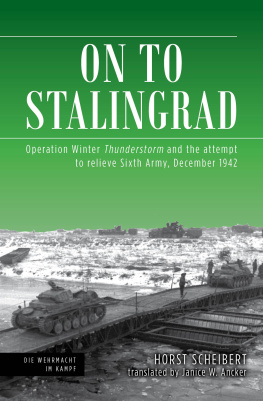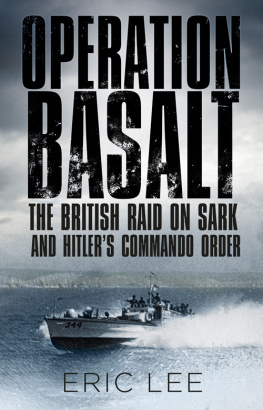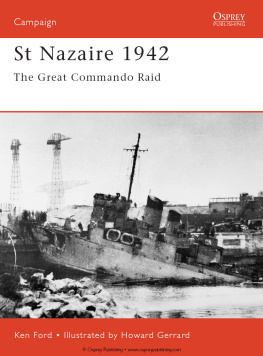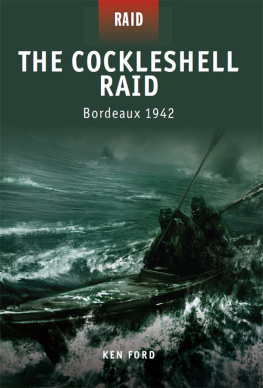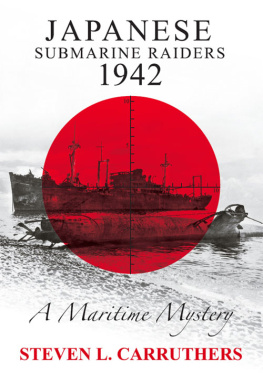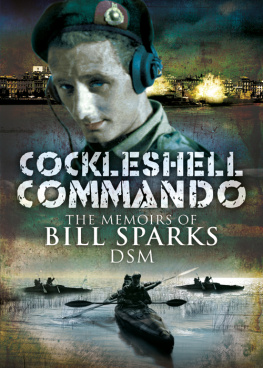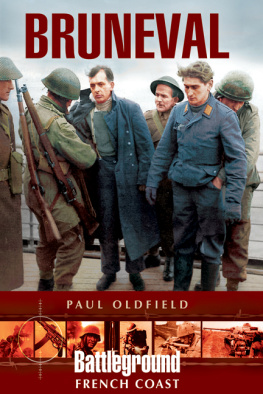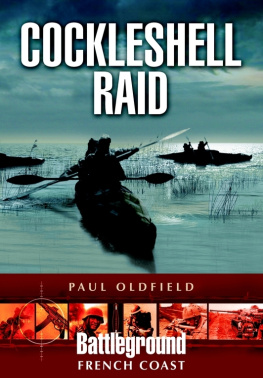Acknowledgements
I could not have written this book without the active assistance of a wide range of people in Britain, France, the United States and Germany who generously gave me their time and access to material about the raid. I am particularly grateful to Mrs Bridget Hasler who opened up Blondies extensive papers to me and allowed me their unrestricted use. These included interview transcripts, diaries, letters, articles, and in particular a long article possibly written by Blondie himself, but at the very least the product of a detailed interview with him, about the raid. Some of Chapters 10, 11, 12 and 14 have been taken verbatim from these detailed notes. I benefited especially from Bridgets insights into her remarkable husband.
I am especially obliged to a range of experts in their respective fields who helped me understand the broader context of military operations in Europe in 1942 and 1943. Professor M.R.D. (Michael) Foot, the SOE historian, explained the role and impact of special operations in France during those years as well as enabling me to understand something of the complicated relationships between MI6, the BCRA, MI9 and SOE. I am indebted to him for his time and observations. Dr Matthew Cobb of the University of Manchester and author of The Resistance has been of immense help in the detail of the Resistance in the Landes region, Aquitaine and the Charente, especially for bringing the diversity of the BCRA and SIS operations in and around Bordeaux to my attention, and for saving me from many errors. His provision of sources in French was of incalculable benefit to my knowledge of the various aspects of the resistance movement in the region. I was also helped in many ways also by Ewen Southby-Tailyour, Blondies biographer, not least in his allowing me to view the full range of correspondence built up during his research for the biography. Ewen and Patricias help and friendship as I wrote the book were a tremendous encouragement.
Likewise I am grateful for the generous assistance of the filmmaker Tom Keene, who in an article on the raid in the Globe and Laurel Journal in 2005 and in a BBC documentary exposed the Scientist dimension to the story; Tom also explained the role that Major David Wyatt RE played in the relationship between SOE and CODC. I thank, too, Matt Little, archivist at the Royal Marines Museum; Malcolm Cavan OBE; the Combined Services Museum, Maldon, Essex; Mark Bentinck (the Royal Marine historian); Christopher Long, Keith Jane and Roger Stanton who patiently described to me the working of the Pat OLeary escape line and answered all my questions; Duncan Stuart, lately the SOE adviser to the Foreign and Commonwealth Office (and whose wife Leonore translated the German text of Vice-Admiral Julius Bachmanns war diary), and the historian Nigel Perrin. Once again I have been supported throughout by the encouragement and editorial efforts of Philip and Isla Brownless.
In France I could not have managed without the wholehearted support of Franois Boisnier who for many years was President of the organisation Frankton Souvenir, and who maintains an active interest in all things associated with the Cockleshell raid. He, more than anyone else, has opened up the story of the raid to a wide audience and I am grateful for his permission to use his material (published or otherwise) for this book. Sitting in his ample study in the beautiful medieval town of Barbezieux, devouring his huge collection of material over several days in the autumn of 2010, was one the highlights of my writing year. His excellent Le Commandode LImpossible (2002), written with his friend Raymond Muelle, is unfortunately available only in French. Much of the original research in Freiburg and Washington was prompted in the first place by Franois. I have been able to develop this research in places, but I pay testimony to him for his first opening the door.
I am also grateful for the assistance provided in different ways in France by Dr Hugues Maquis of the University of Poitiers; M. Francis Salaberry, M. Eric Poineau; M. St Marc; M. Furet; Mme Landreau (owner of the Fiery Woodmans Cottage at Npres Farm, St Preuil), M. Jacques Loiseau in Bordeaux for his excellent record-keeping of the French Resistance in the Gironde area and the Centre Jean Moulin, Bordeaux. I am grateful, too, for the lovely accommodation provided for me in Barbezieux by Christopher and Audrey Raggatt at La Petite Champagne. I was fascinated to discover that I had written of Chriss father in one of my previous books. Sapper Raggatt of the Royal Engineers had fought against the Japanese in the ill-fated Arakan campaign of 1942/43, and his diary was of much use to me when I was writing The Generals in 2007/8. I was fortunate on another occasion to find myself at the magnificent Villa DO at Saint Loubs, which can be heartily recommended for any visit to Bordeaux.
Finally, I pay testament to the assistance provided to me by Norman Colley, and to the families of the men who went on the raid. All but two did not return. These include Bridget Hasler, Peter Siddall, Ken and Judy Sims, Isabella Mackinnon, Janet Lafferty (ne Ewart), John Connally, Eddie Ward, Brigid Legge, Jimmy Sparks and Gilly Clark (ne Sparks). I was told by one of them that despite the passing of the years not a day went by when they did not mourn the loss of their loved ones, some of whom had died in the most despicable of circumstances. Nevertheless, they walked tall in the knowledge of what these extraordinary men, in this most gallant of generations, had achieved. I am especially grateful to Peter Siddall, the nephew of George Sheard, for helping to edit the manuscript of this book, to its great benefit.
It goes without saying that, grateful as I am to the many people who helped me, I alone am responsible for the contents and conclusions of this book and for any errors that may inadvertently have been included.
Note
For reasons of consistency and clarity all instances of the twenty-four-hour clock have been converted to the twelve-hour clock, and metric units have been converted to imperial.
APPENDIX 1
Hitlers Kommandobefehl, 18 October 1942
1. For a long time now our opponents have been employing in their conduct of the war, methods which contravene the International Convention of Geneva. The members of the so-called Commandos behave in a particularly brutal and underhand manner; and it has been established that those units recruit criminals not only from their own country but even former convicts set free in enemy territories. From captured orders it emerges that they are instructed not only to tie up prisoners, but also to kill out-of-hand unarmed captives who they think might prove an encumbrance to them, or hinder them in successfully carrying out their aims. Orders have indeed been found in which the killing of prisoners has positively been demanded of them.
2. In this connection it has already been notified in an Appendix to Army Orders of 7.10.1942 that in future, Germany will adopt the same methods against these Sabotage units of the British and their Allies; i.e. that, whenever they appear, they shall be ruthlessly destroyed by the German troops.
3. I order, therefore: From now on all men operating against German troops in so-called Commando raids in Europe or in Africa, are to be annihilated to the last man. This is to be carried out whether they be soldiers in uniform, or saboteurs, with or without arms; and whether fighting or seeking to escape; and it is equally immaterial whether they come into action from Ships and Aircraft, or whether they land by parachute. Even if these individuals on discovery make obvious their intention of giving themselves up as prisoners, no pardon is on any account to be given. On this matter a report is to be made on each case to Headquarters for the information of Higher Command.



